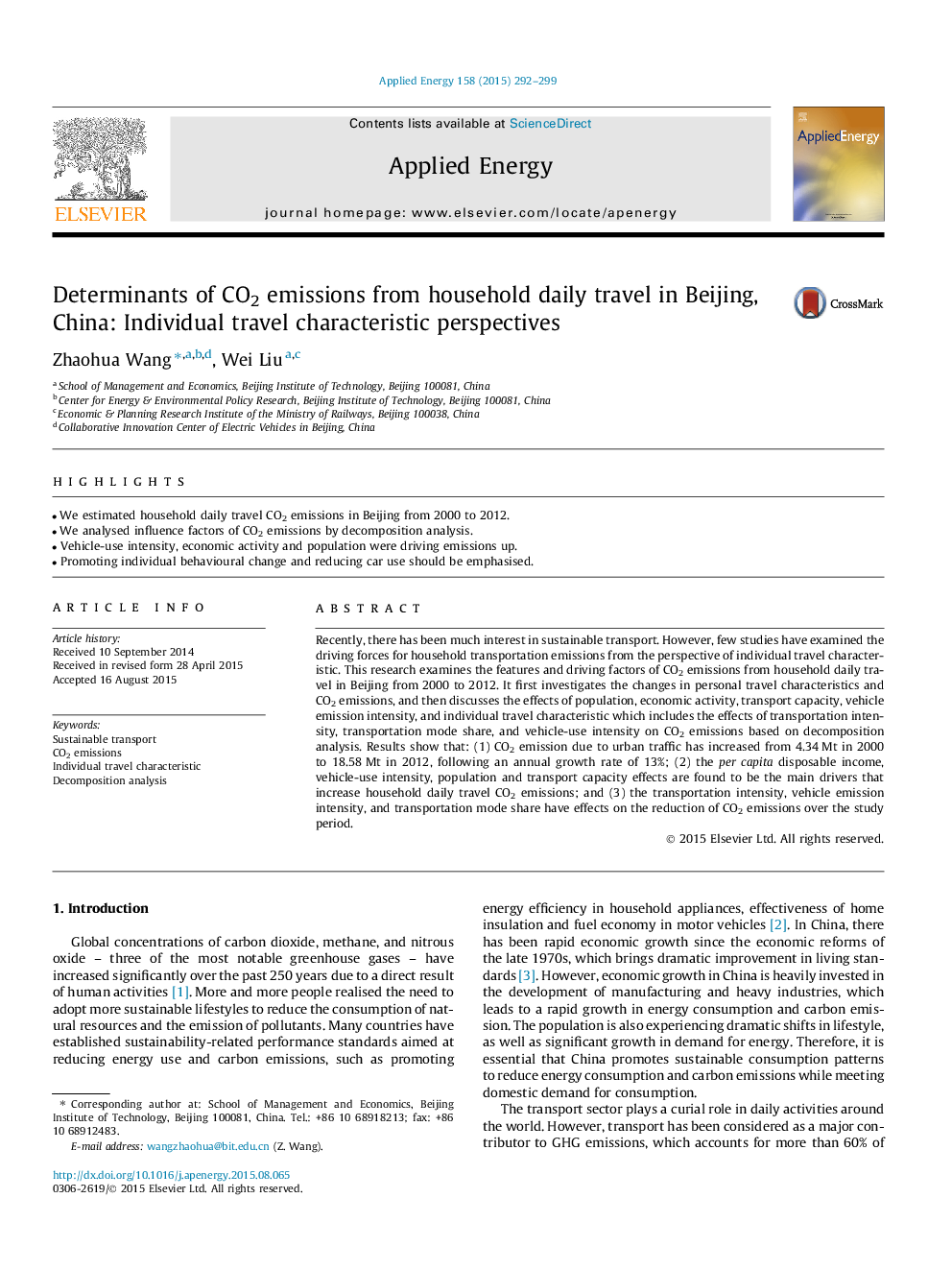| Article ID | Journal | Published Year | Pages | File Type |
|---|---|---|---|---|
| 6685725 | Applied Energy | 2015 | 8 Pages |
Abstract
Recently, there has been much interest in sustainable transport. However, few studies have examined the driving forces for household transportation emissions from the perspective of individual travel characteristic. This research examines the features and driving factors of CO2 emissions from household daily travel in Beijing from 2000 to 2012. It first investigates the changes in personal travel characteristics and CO2 emissions, and then discusses the effects of population, economic activity, transport capacity, vehicle emission intensity, and individual travel characteristic which includes the effects of transportation intensity, transportation mode share, and vehicle-use intensity on CO2 emissions based on decomposition analysis. Results show that: (1) CO2 emission due to urban traffic has increased from 4.34Â Mt in 2000 to 18.58Â Mt in 2012, following an annual growth rate of 13%; (2) the per capita disposable income, vehicle-use intensity, population and transport capacity effects are found to be the main drivers that increase household daily travel CO2 emissions; and (3) the transportation intensity, vehicle emission intensity, and transportation mode share have effects on the reduction of CO2 emissions over the study period.
Related Topics
Physical Sciences and Engineering
Energy
Energy Engineering and Power Technology
Authors
Zhaohua Wang, Wei Liu,
